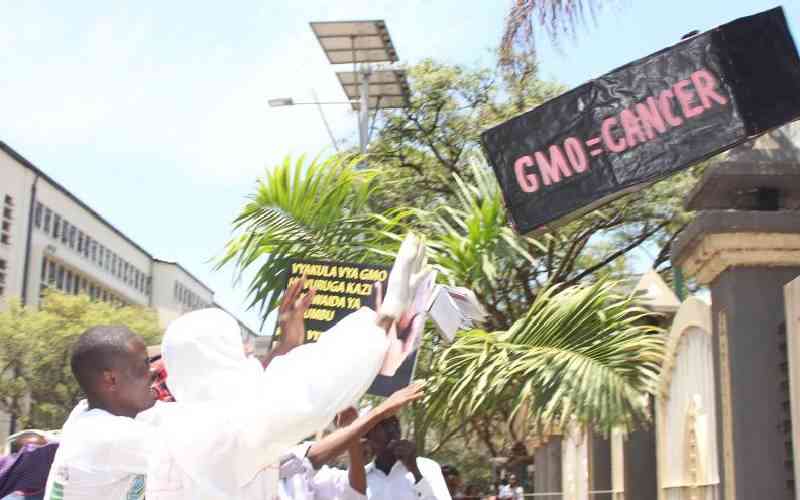×
The Standard e-Paper
Fearless, Trusted News

The ongoing pull and push between proponents and opponents of genetically modified organisms (GMOs) is an indictment of government communication practice as much as it is a genuine concern on the health implications of GMOs.
The case of the HIV/Aids pandemic in the 1990s should remind all and sundry what a relegation of duty it is for scientists and government to stay with facts on the one side while the public wrestles with speculation, opinions, lies and propaganda on the other.